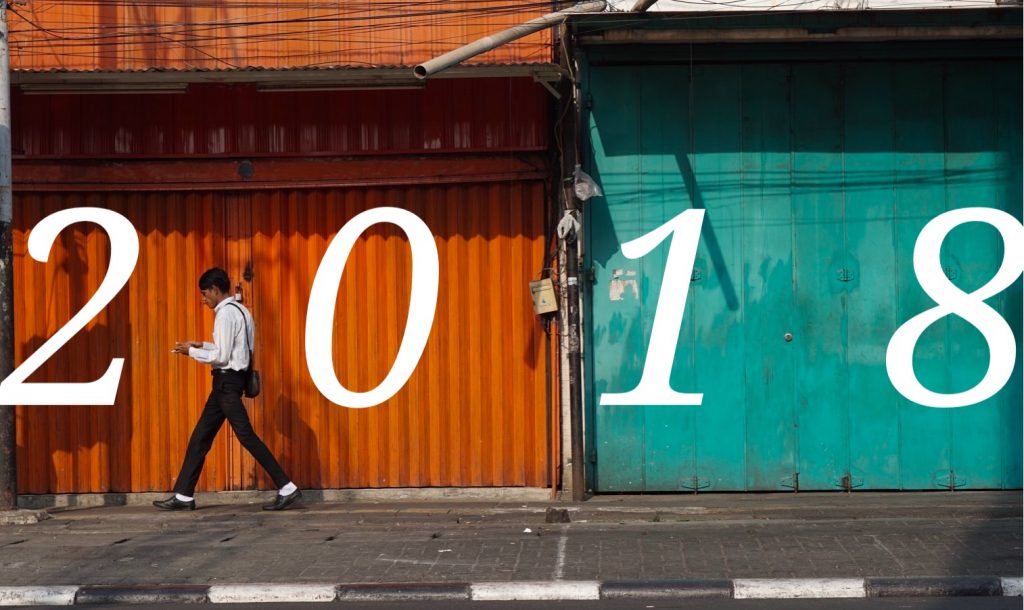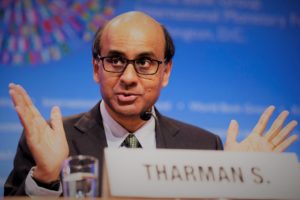 #1. “Singapore’s mystifying political succession”
#1. “Singapore’s mystifying political succession”
Back in February, Cherian George speculated about why the PAP appeared to be passing over one of its most talented ministers, Tharman Shanmugaratnam.
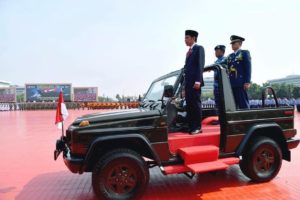 #2. “Jokowi’s authoritarian turn”
#2. “Jokowi’s authoritarian turn”
Tom Power’s provocative piece, based on his presentation at the 2018 ANU Indonesia Update conference, made the case that Jokowi was embracing heavy-handed measures to safeguard his reelection in 2019.
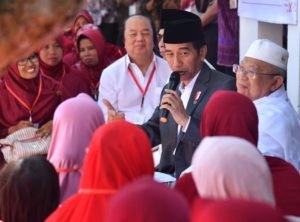 #3. “Ma’ruf Amin: Jokowi’s Islamic defender or deadweight?”
#3. “Ma’ruf Amin: Jokowi’s Islamic defender or deadweight?”
Greg Fealy took a detailed look at the background of Jokowi’s conservative running mate, identifying a pragmatic streak in Ma’ruf Amin that suggested that he would not be a diehard promoter of Islamic politics as vice president.
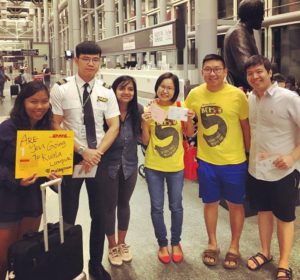 #4. “The amazing race for Malaysia, across the world”
#4. “The amazing race for Malaysia, across the world”
On the eve of GE14, Tashny Sukumaran highlighted the lengths some expatriate Malaysians were going to to get their votes counted.
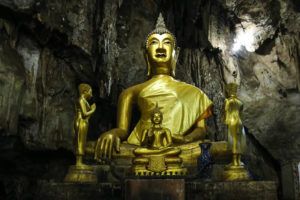 #5. “Myth and politics in Thailand’s cave rescue operation”
#5. “Myth and politics in Thailand’s cave rescue operation”
When the world was waiting for news of the soccer team trapped in a northern Thai cave, Edoardo Siani explored the symbolic politics of the rescue operation then underway.
 #6. “Rebellion and regret: talking to rural voters after GE14”
#6. “Rebellion and regret: talking to rural voters after GE14”
Serina Rahman’s snapshot of rural Malay communities revealed that the surge of support for Pakatan Harapan in some rural communities had been followed by a deep scepticism of the new government.
 #7. “Mapping the Indonesian political spectrum”
#7. “Mapping the Indonesian political spectrum”
A team of researchers presented the highlights of their research into how Indonesian political parties divide on key ideological questions—or rather, don’t.
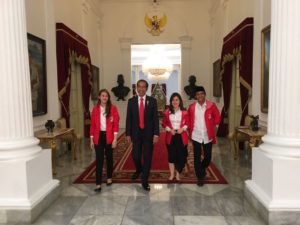 #8. “Millennials won’t rescue Indonesia”
#8. “Millennials won’t rescue Indonesia”
In this translation of a piece that first appeared at IndoPROGRESS, Abdil Mughis Mudhoffir argued that the media-savvy Indonesia Solidarity Party is as much a creature of the system as the parties it claims to challenge.
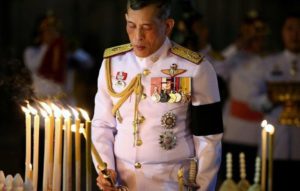 #9. “Has Rama X revived Thailand’s death penalty?”
#9. “Has Rama X revived Thailand’s death penalty?”
This analysis, by an anonymous contributor, considered whether King Vajiralongkorn has reactivated capital punishment in Thailand, even if by omission rather than commission.
 #10. “Piety, politics, and the popularity of Felix Siauw”
#10. “Piety, politics, and the popularity of Felix Siauw”
Hew Wai Weng profiled one of the most colourful, and unlikely, stars of Indonesia’s online dakwah boom.
 #11. “Historical perspectives on Philippines contemporary art”
#11. “Historical perspectives on Philippines contemporary art”
The editors of the Perspectives on the Past blog used a major Sydney exhibition to assess how the modern Philippines can be understood through its art.
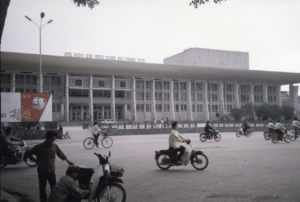 #12. “The Winning Side (Bên Thắng Cuộc)”
#12. “The Winning Side (Bên Thắng Cuộc)”
Peter Zinoman reviewed Huy Duc’s acclaimed history of post-reunification Vietnam, and considered what it reveals about the Doi Moi (renovation) era.
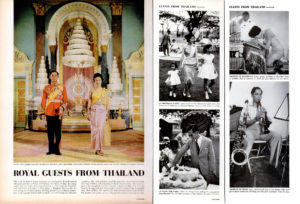 #13. “Marrying the Thai monarchy and modernity”
#13. “Marrying the Thai monarchy and modernity”
Pavin Chachavalpongpun on Harry, Meghan, and the debate over the cost of monarchy in the UK and Thailand.
 #14. “Thailand’s rap against dictatorship”
#14. “Thailand’s rap against dictatorship”
Ethnomusicologist James Mitchell looked at the cultural and historical significance of the surprise hit protest song.
 #15. “Disinformation and democracy in Indonesia”
#15. “Disinformation and democracy in Indonesia”
Ross Tapsell took stock of the threat of “hoax news” in Indonesia, and suggested some possible remedies.
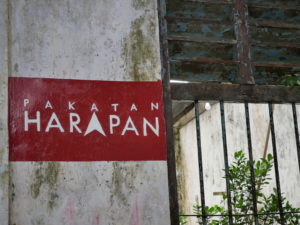 #16. “Malaysia after GE14: transition to what?”
#16. “Malaysia after GE14: transition to what?”
Meredith Weiss emphasised the uncertainty about what political futures lay ahead in the aftermath of Barisan Nasional’s shock defeat.
 #17. “Education on the fringe in Indonesia”
#17. “Education on the fringe in Indonesia”
Ben Laksana’s snapshot of the disconnect between national education policy and the needs of highland communities in Papua.
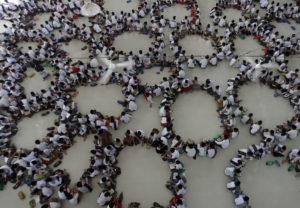 #18. “Nahdlatul Ulama and the politics trap”
#18. “Nahdlatul Ulama and the politics trap”
Greg Fealy assessed the political position of Indonesia’s largest Islamic organisation, and argued that despite its closeness to the Jokowi government, there are long term challenges to its influence among Indonesian Muslims.
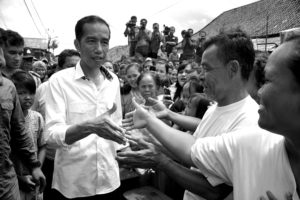 #19. “Twenty years of Indonesian democracy—how many more?”
#19. “Twenty years of Indonesian democracy—how many more?”
Edward Aspinall reflected on the current challenges to democratic quality in Indonesia on the 20th anniversary of the collapse of the New Order.
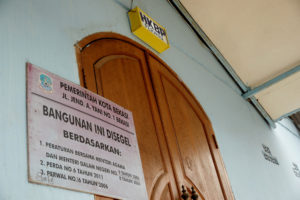 #20. “Measuring religious intolerance across Indonesian provinces”
#20. “Measuring religious intolerance across Indonesian provinces”
Nathaniel Sumaktoyo suggested a better statistical method to identify which parts of Indonesia are least tolerant of religious minorities.
 Facebook
Facebook  Twitter
Twitter  Soundcloud
Soundcloud  Youtube
Youtube  Rss
Rss 